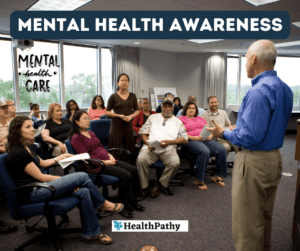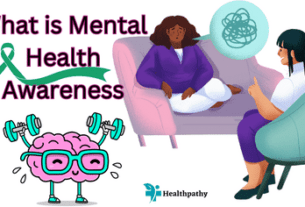Mental Health Awareness

In recent years, the importance of mental health awareness has gained significant recognition as societies worldwide acknowledge the far-reaching impact of mental health on individuals, families, communities, and economies. Mental health is an essential component of overall well-being, and raising awareness about its significance is crucial for fostering understanding, empathy, and support for those affected. This article delves into the depths of mental health awareness, discussing its importance, common misconceptions, strategies for promotion, and the role of different stakeholders in creating a mentally healthier world.
Importance of Mental Health Awareness
Mental health is a state of emotional, psychological, and social well-being in which an individual can cope effectively with life’s challenges, work productively, and make meaningful contributions to their community. Mental health awareness is vital because it dismantles stigma and encourages open conversations about mental health issues. By understanding mental health, individuals can identify signs of distress in themselves and others, seek timely help, and work towards achieving and maintaining mental wellness.
Common Misconceptions
Weakness or Lack of Willpower: One prevalent misconception is that mental health issues are a sign of weakness or a lack of willpower. In reality, mental health problems are complex and can affect anyone, regardless of their strength or determination.
“Just Snap Out of It”: Another misconception is that individuals can simply “snap out” of mental health struggles. Mental health is not a matter of will; it often requires professional intervention, support, and time to heal.
Visible Symptoms Only: Mental health issues aren’t always visible to the naked eye. Just because someone appears fine on the outside doesn’t mean they’re not grappling with internal challenges.
Strategies for Promoting Mental Health Awareness
Education and Outreach: Schools, workplaces, and communities can organize workshops, seminars, and awareness campaigns to provide accurate information about mental health, debunk myths, and teach coping strategies.
Media Representation: Accurate and sensitive portrayals of mental health in movies, TV shows, and other media can contribute to reducing stigma and promoting understanding.
Open Conversations: Encouraging open conversations about mental health helps normalize discussions. It allows individuals to share their experiences, seek support, and learn from one another.
Supportive Environment: Creating an environment where individuals feel safe and supported in discussing their mental health struggles can lead to early interventions and reduced stigma.
Access to Resources: Ensuring that mental health resources, such as counseling services and helplines, are readily available and affordable is crucial for individuals seeking help.
Stakeholders in Mental Health Awareness
Individuals: By educating themselves about mental health, individuals can recognize signs of distress in themselves and others, fostering empathy and offering support when needed.
Families and Friends: Close relationships play a significant role in supporting someone with mental health challenges. Understanding, patience, and active listening are essential.
Educational Institutions: Schools and universities can incorporate mental health education into their curricula, to manage stress and seek help.
Workplaces: Employers can promote a mentally healthy workplace by offering wellness programs, flexible work , and resources for managing workplace stress.
Healthcare Providers: Mental health professionals are pivotal in raising awareness by providing accurate information, counseling services, and treatment options.
Summary
Mental health awareness is a crucial step toward building a more empathetic, supportive, and mentally healthier society. By dispelling misconceptions, fostering open conversations, and providing access to resources, we can collectively work towards reducing mental health issues. It is the responsibility of individuals, communities, and institutions, to join hands in raising awareness of mental well-being for all.
Related Articles:



Follow us:





